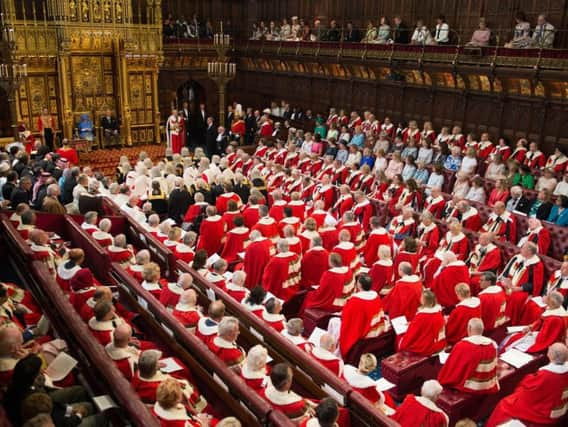'Most MPs are worth every penny - but greedy Lords are a let down'


They are conscientious people who go to extraordinary lengths to serve their community after being brave enough to stand for election.
They certainly don’t deserve the indefensible venom meted out by some of their more hate-filled constituents, as outlined by Dewsbury MP Paula Sherriff earlier this week.
Advertisement
Hide AdAdvertisement
Hide AdIt’s the same with the House of Lords. Despite its many imperfections, most peers are motivated by the greater good and a desire to use their influence to influence policy for the better.
Yet, once again, the diligence of the majority is undermined by the greed, arrogance and hubris of a small minority who do not honour the high standards that the country should expect of such privileged people.
I refer to the revelation that 115 peers – one in seven – did not contribute in a debate during the 2016/17 Parliamentary session, despite claiming an average of £11,091.06 each in expenses and allowances, according to newly-released research.
Though some will, of course, have taken part in important work on committees, it points to a worrying number of couch-potato peers and lobby-fodder Lords.
Advertisement
Hide AdAdvertisement
Hide AdLeaving aside the fact that this Government, like its predecessors, doesn’t have the stomach – or support – to reform the Lords significantly, the argument being that an elected second chamber would undermine the greater powers exercised by MPs in the Commons, these abuses need to be stopped.
Before accepting a peerage, recipients under consideration need to demonstrate that they can make the necessary time commitments. When composer Andrew Lloyd-Webber was ennobled for services to music in 1997, it took him many years to realise the requirements of his new role.
Even now Hansard, the Parliamentary bible, records just 11 interventions since 1997 and 25 occasions when Lord Lloyd-Webber took part in divisions, even though he was appointed because John Major, the then PM, wanted someone of stature fighting for the arts.
Although it should be noted that Lord Lloyd-Webber has never claimed any expenses from the House of Lords, if there were clearer rules on the requirements of peers – Betty Boothroyd was quite forthright on this need when I interviewed the former Speaker earlier this year – there would be less opportunity for the Lords, and Parliament, to be brought into disrepute unnecessarily.